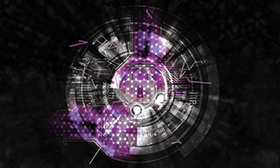

Liquid C2, a business of Liquid Intelligent Technologies, a pan-African technology group, has revealed that the number of cyberattacks on businesses in Kenya, South Africa, and Zambia increased by 76%. This is according to the latest cyber security report, The Evolving Cyber Security Landscape in Africa 2022.
Featuring research, analysis, and findings across the three countries on the evolving cybersecurity threats present in Africa, the report shows that cyberattacks against all large enterprises ramped up dramatically. Kenyan businesses reported an 82% increase in such attacks, while South African businesses recorded a 62% increase, and Zambian businesses a 62% increase.
“The biggest concern emerging from this report is that companies are saying that they’ve put a lot more cybersecurity controls in place. With threats evolving faster than security systems, companies cannot afford to get complacent,” says David Behr, CEO of Liquid C2. “The report highlights that businesses must be consistently vigilant about the ever-evolving cybercrime landscape and the methods malicious actors use to breach cybersecurity measures. As the report shows, complacency is a luxury no one can afford.”
There are reasons to be optimistic; all the respondents in the report highlighted that they had advanced significantly in their cloud and digital strategies and cybersecurity capabilities. Furthermore, the majority (68%) of the companies interviewed in the research said they had appointed cybersecurity staff members or signed up with a cybersecurity team in the past year.
Partner with experts
Yet, as Behr says, this could prove to be a double-edged sword. The research highlights that over half of all large enterprises in the three countries were victims of a successful cyberattack, with 90% of them being Kenyan businesses. Increasingly sophisticated methods like Cybercrime-as-a-Service (CaaS) are becoming more popular in Africa, meaning businesses can no longer rely on outdated technologies and processes. “It is time they invested in a partner that provides 24/7/365 protection, rapid response, threat intelligence and prevention, compliance and improved business reputation, all designed to cater to the specific needs of businesses.”
The top method of attack used by cybercriminals targeting companies was through email, using phishing or spam attacks (61%), with attacks through compromised passwords following at 48% and data breaches and attacks (44%) being the second and third most common. Furthermore, 61% of the companies included in the research said that the breaches to their operations occurred as a result of remote or hybrid working.
One of the most concerning revelations in the report is that Africa faces a growing 100 000 person gap in the number of certified cybersecurity professionals. Reports estimate that there are only 7000 certified cyber security professionals, or one for every 177 000 people on the continent. However, this number may disguise the true magnitude of the problem as there is no readily available data on the level of investment made by African governments into cybersecurity.
The report underlines the increasing need for companies to invest in cybersecurity measures to avoid reputational damage, financial loss, and potential business interruptions. Additionally, it reinforces how vital it is for organisations to collaborate with trusted third-party managed security services providers (MSSPs) to implement and refine their cybersecurity strategies.
The report can be downloaded via www.securitysa.com/*lc2

© Technews Publishing (Pty) Ltd. | All Rights Reserved.